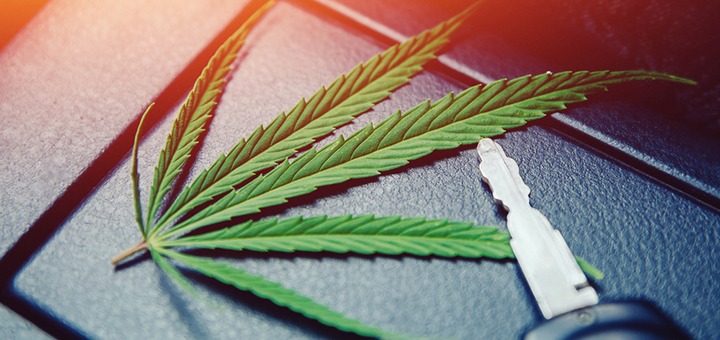You are here
Home 🌿 Marijuana Politics 🌿 Jail Time For Impaired Drivers in Canada Just Increased From 5 To 10 Years 🌿Jail Time For Impaired Drivers in Canada Just Increased From 5 To 10 Years

The penalties for distracted driving in British Columba have steadily increased; however, the punishment for impaired driving in Canada just got much more severe.
In conjunction with Bill C-45, otherwise known as the Cannabis Act, the new laws were created to deter people from getting behind the wheel after ingesting THC.
Canada will officially became the second country in the world to legalize marijuana as of October 17th, 2018. At that time, these new laws will come into effect.
Of course, these laws will apply to myriad other substances, as well. They are meant to keep anyone off the road who isn’t sober enough to operate a vehicle.
As such, Bill C-46 received Royal Assent on June 21st, and includes major reforms to impaired driving legislation.
Bill #C46 has received Royal Assent : https://t.co/P2EpQuRYFS #SenCA #cdnpoli pic.twitter.com/JRJC63NMWd
— Senate of Canada (@SenateCA) June 21, 2018
New Impaired Driving Legislation
While the changes won’t come into effect for many months, they carry a number of new reforms.
For one, an impaired driving conviction is no longer considered an “ordinary criminality.” Instead, it is considered a “serious criminality.”
As a result, offenders may face jail terms of up to 10 years imprisonment, rather than five. In addition, foreign nationals and permanent residents may face deportation.
Police may also perform random breathalyzers on people they suspect are driving drunk; they no longer require reasonable suspicion.
As for cannabis, the federal legislation includes the following stipulations, plus anything that provincial governments add:
- A THC level between 2 and 5 ng would be a lower-level offence with a fine of up to $1000;
- A THC level above 5 ng would come with the same penalties as an alcohol-impaired driving conviction, including mandatory minimum penalties of a $1000 fine on a first offence, 30 days imprisonment on a second offence and 120 days imprisonment on a third offence;
- A mixture of a THC level above 2.5 ng and a blood alcohol concentration above 50 mg per 100 mL would have the same penalties as above.
Police will also have to ability to test saliva for THC levels with roadside screening tests. With that being said, they cannot perform random testing on drivers.
420 Intel is Your Source for Marijuana News
420 Intel Canada is your leading news source for the Canadian cannabis industry. Get the latest updates on Canadian cannabis stocks and developments on how Canada continues to be a major player in the worldwide recreational and medical cannabis industry.
420 Intel Canada is the Canadian Industry news outlet that will keep you updated on how these Canadian developments in recreational and medical marijuana will impact the country and the world. Our commitment is to bring you the most important cannabis news stories from across Canada every day of the week.
Marijuana industry news is a constant endeavor with new developments each day. For marijuana news across the True North, 420 Intel Canada promises to bring you quality, Canadian, cannabis industry news.
You can get 420 Intel news delivered directly to your inbox by signing up for our daily marijuana news, ensuring you’re always kept up to date on the ever-changing cannabis industry. To stay even better informed about marijuana legalization news follow us on Twitter, Facebook and LinkedIn.




